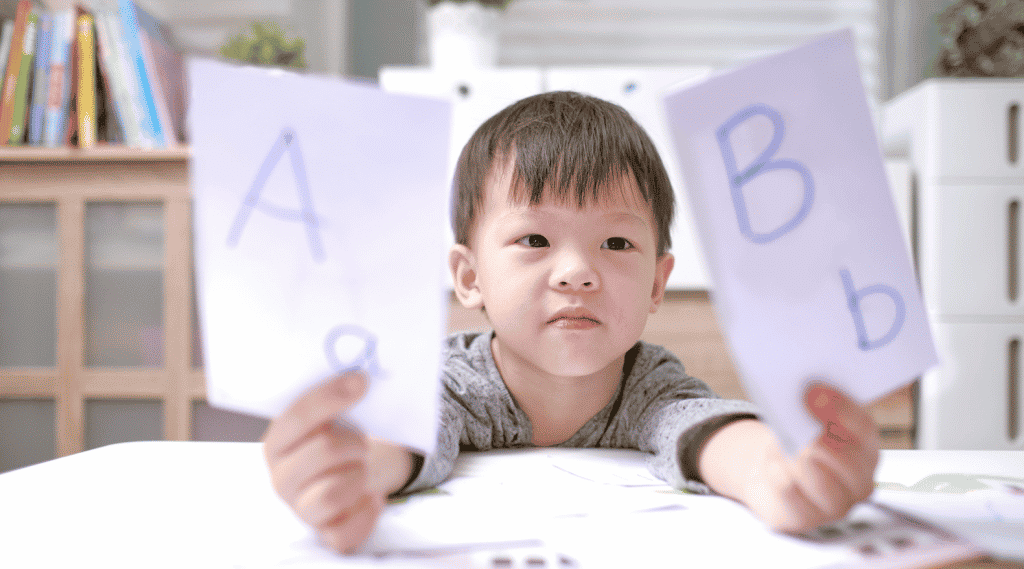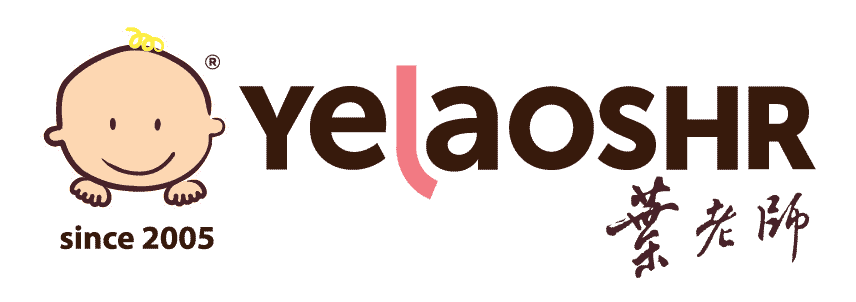The Best Early Childhood Education Center in Malaysia | Develop Your child with Yelaoshr

Early childhood education has a significant influence in children’s development in Malaysia even if it is not compulsory. It is also referred to as a crucial stage in a kid’s development and deals with the personality development of a youngster.
Changes in the child’s biology, psychology, and emotions all occur during development. To ensure that the child receives the fundamentals of their own development, the parents must be knowledgeable about the process of development and be aware of the changes.

What is early childhood education in Malaysia?
In Malaysia, young children from birth to age six receive early childhood education. Both governmental and non-governmental groups support it financially. However, it is optional because it is not a part of the official Malaysian educational system.
In Malaysia, there are two types of early education: nursery and preschool. The nurseries often care for a small number of young children under the age of five in homes. Preschools care for larger groups of children aged five to six and are generally center-based.
Why Early Childhood Education is Important
Every minute of a child’s life is spent learning. The right direction in the form of high-quality early childhood education can have a significant impact on everything from using a fork and building sandcastles to reading and socializing.
Children’s and adults’ academic and extracurricular success is not solely a function of their inherent talents. An key component is early childhood education.
Preschoolers need to learn how to socialize, share, and create connections in addition to basic skills. By starting early, children will have a solid basis for a pleasant journey into adulthood and will find it much simpler to communicate with their peers and teachers.
Let’s look at some more advantages of educating children early.
Evaluating Brain Capacity
A child’s brain grows more rapidly between birth and age five than at any other time in their lives. Before a child enters primary school, the brain has grown 90% of the way. To ensure future academic achievement, it is crucial to make the most of this time.
Children who are under 3 from wealthy homes know 30 million more words than children from poorer families, according to the research “The Early Catastrophe: The 30 Million Word Gap by Age 3.”
It’s easy to understand why. The number of words people use when speaking to children determines the size of their vocabulary. Children simply wouldn’t have as many early childhood education opportunities to develop their brains to their greatest potential.
Development of Social Skills
Childhood education must include socialization with persons outside of the home. The educational process can be made simpler in the future by learning how to communicate with others, whether they are peers or teachers.
Adult involvement and modeling are necessary for early socialization. Social life depends on people being able to share and work together. Children can get a lot from it when done under competent supervision.
Children will benefit from developing skills in a secure learning environment outside of the classroom as well. They can significantly boost their self-confidence and their relationship with their parents.
Appreciating the Fun of Learning
Even though kids are always learning, learning can still be challenging. Children may lose all of their natural enthusiasm if they aren’t ready for the process. These children might struggle in elementary school and beyond as a result.
Experts in early childhood education are skilled at making learning engaging and joyful. Children may embrace the difficulties that the learning process presents and relish being active learners once they realize that learning can be fun and rewarding.
Strengthening Focus
Little ones have limited attention spans. They frequently struggle to focus for extended periods of time due to their eagerness to learn new things. Early childhood education programmes allow them the chance to experience new settings, connections, and experiences while honing their concentration.
Children are capable of listening, participating in group activities, following instructions, and focusing on individual projects by the time they enter kindergarten.
Investing in Health
Children’s health is improved both immediately and over time by early childhood education. Health treatments, which are frequently included in early education packages, have short-term advantages. Preschoolers who attend daycare facilities or other child care programmes typically have regular health exams and eat wholesome food.
Higher wealth and a decreased likelihood of risky behavior have long-term advantages since they lower stress and make it simpler to acquire high-quality healthcare services.
How Early Childhood Education Can Help Your Child Succeed
Some parents might be surprised to find that children will lay the groundwork for a lifetime of academic success between the ages of three and five. Early childhood education programmes may appear to be just playtime with the occasional basic art activity, but young kids are actually engaged in significant learning in the classroom. Here are laid the foundational pieces for their entire schooling.
Students can practise their pre-literacy skills by listening to a narrative that their teacher is reading. The fundamentals of pre-numeracy skills are being mastered by those who play with blocks and other manipulatives. Children that take art classes develop their dexterity, which will eventually aid in their writing, as well as their problem-solving abilities. Children are encouraged to move about, build their bodies, and improve their coordination abilities through physical activity and “play time.”
Why You Should Choose a Quality Program for Your Child’s Early Education
Children are given a safe environment to study, experience their world, and form relationships when they spend their first five years in a high-quality programme. The groundwork is laid for kids to succeed in school, the workplace, and in life by being in this kind of atmosphere.
There are numerous advantages to receiving high-quality child care. In addition to improving academic performance, high-quality child care has been linked to better health and higher earnings throughout the course of a kid’s lifetime. Improvements in academic performance, health, and financial outcomes demonstrate the benefits and significance of early childhood investment. The best possibilities for children to grow and learn are provided when we invest in high-quality early childhood programmes.
The practises, interactions, and staff credentials of programmes and providers with a star rating have shown quality. With reduced adult-to-child ratios and community partnerships, many highly rated programmes and providers use an approved screening, evaluation, and curriculum. Children who receive high-quality care do better in school and have better health and financial results over the course of their lives.
What to Look For in a Good Early Childhood Education Program
Interactions with others
A teacher’s ability to establish a positive learning environment is essential to an early childhood program’s success. Early experiences have a significant impact on a child’s development, and teachers are crucial in providing those experiences. Using responsive language, involving all students in learning activities, encouraging independence, and building a language-rich atmosphere, a well-educated and highly experienced teacher adapts their interactions to match the needs of the kid. Effective early childhood educators actively prevent and redirect troublesome behavior and attend to the needs of the children in a respectful, affectionate, and empathetic manner. Early interactions with instructors can set the tone for interactions with teachers in later grades. As a result, early experiences with teachers are essential for encouraging positive attitudes about school and learning strategies.
Physical environment
Children require a physical space where they may play, explore, and learn securely. This space should be both indoors and outside. According to the various developmental stages of the children, the learning environment must contain interesting and developmentally appropriate resources and be set up to encourage independence and discovery. Infants, for instance, must engage in very tactile interactions with their surroundings in order to examine cause and effect linkages by touching and feeling objects. Toys made of various materials that are small enough for a baby to pick up should therefore be present in the environment.
Preschoolers and toddlers play in a more socially dramatic way with one another while using objects in increasingly complicated combinations. Toys that can engage youngsters in problem-solving, like puzzles, and that can inspire their imagination, like play kitchens, are necessary for their environment. Learning centers can be a useful way to organize and support developing abilities, encourage interactions, create opportunities for role playing, and advance literacy skills. Learning centers are clearly delineated spaces set aside in a learning environment where kids can easily access materials and engage in independent and self-directed learning activities.
Children require access to outdoor areas where they can walk around and interact with nature in addition to the indoor learning environment. Outdoor play has beneficial effects on health, has been demonstrated to reduce childhood obesity, and aids in the immune system’s development. Additionally, studies show that kids who play outside frequently have more vivid imaginations, experience less stress, and appreciate others and themselves more.
Program support structure
A quality early childhood programme must have a high-functioning operating environment. There are various sorts of this administrative operational support. First and foremost, programmes require capable leaders who can support instructors’ instruction while also ensuring solid business administration for the entire programme. These varied leadership roles are challenging and frequently require the participation of numerous people. Second, programmes require a number of structural supports that are not part of the immediate programme, such as access to resources for professional development and quality improvement, steady and enough funding sources, and a supply of qualified teachers. These outside aids acknowledge that early childhood programmes depend on the larger early childhood system and do not run in a vacuum.
To guarantee quality, all three conditions must be met. Without an effective teacher to utilise those resources, a classroom with enough supplies is insufficient. A support structure to oversee operations, assist with education, and offer professional development is necessary for a competent teacher to remain in the classroom.
Develop Your Child with Yelaoshr Early Childhood Curriculum
Your child will have the chance to develop and widen their foundational abilities in Yelaoshr, preparing them for a lifetime of learning and enabling them to have a positive impact on the world.
Skills that your kid will master in Yelaoshr are listed below:
Development of Emotions
Yelaoshr will assist your child in developing an understanding of both his or her own feelings and the sentiments of others. Learning to understand and control one’s emotions as well as the behaviors that go along with them is part of this.
Social abilities
In Yelaoshr preschoolers learn how to respect and get along with others through cooperative play and studying alongside one another, which helps them further develop their linguistic abilities, self-control, and overall social skills. During planned learning projects or creative play, teachers can help children resolve disagreements that may occur.
Development of Early Literacy
Children can start learning to write their names and read simple words by the time they are three years old. They are prepared for success in literacy development in Yelaoshr by the practice they receive throughout in Yelaoshr.
Listening Skills
The growth of a child’s listening abilities is essential to their entire social and academic learning since it will enable them to follow instructions and comprehend what is being taught to them. Activities in Yelaoshr that improve your child’s listening abilities are encouraged in Yelaoshr settings.
Communication Skills
For your child to be successful in school and in social situations, it is crucial that they have the communication skills necessary to ask questions, express their needs, and do so through both spoken words and body language. All of these communication skills are developed in Yelaoshr through activities and teachers feedback.
Span of Attention
We can all relate to how challenging it may be for young students to remain still and pay attention for longer than a few minutes. In order for children to build their attention spans in preparation for the more difficult classroom situations that lie ahead, Yelaoshr’s controlled but supportive environment is essential.
Early Mathematics
The foundation for each succeeding year’s more complicated mathematical curriculum is laid by preschool-age children learning to recognise numbers and starting to count objects. This helps youngsters begin to understand how mathematics is applied in the real world.
Problem Solving Skills
Problem-solving abilities are necessary in every facet of life. The development of problem-solving skills should start in Yelaoshr since they are essential for success in school, in relationships, and even in the most basic activities of life. Children’s problem-solving abilities can be taught and developed through conversations, games, and tasks.
Creativity
A child who is encouraged to express themselves creatively gains self-confidence and is able to look at problems from several angles. Through creative endeavors, parents may appreciate each child’s individuality while also assisting children in developing a strong sense of self.
Why Parents Should Consider Yelaoshr for Their Child’s Early Education
Student centric approaches to teaching and learning are used in the curriculum at Yelaoshr. With a heavy emphasis on building a strong early years foundation, we aim to help the kids grow in five essential areas which are cognitively, emotionally, socially, linguistically, and physically. The Yelaoshr programme equips students with the skills necessary to succeed intellectually, emotionally, and socially in primary school. We place a strong focus on upbeat community values and give kids a secure environment in which they may push themselves and try new things.
The cornerstones of our teaching methodology include giving our pupils a passion for learning that will last a lifetime as well as the abilities, knowledge, and attitude needed to succeed in a challenging environment. We encourage our pupils to work together, think creatively, reason critically, and develop diverse, inclusive worldviews.
So, parents What are you waiting for? Enrolling your kids at Yelaoshr will help them succeed in life.
3 steps to begin YelaoShr learning journey
STEP 1:
Purchase Voucher
[Up to 80% Off] RM98 Onilne/Offline One-On-One Bahasa Malaysia/ Mandarin/ English Lessons for Kids Aged 4 – 12 years old
STEP 2:
Book an Appointment
Because every child is unique, we focus on face-to-face counseling. Arrange for an appointment at our branch near you.
STEP 3:
Preliminary Learning Assessment
A simple test for your child will determine how we can advice you on their learning improvement. As for the class time, course fee, etc., we will give you a detailed explanation during the parenting consultation session.
